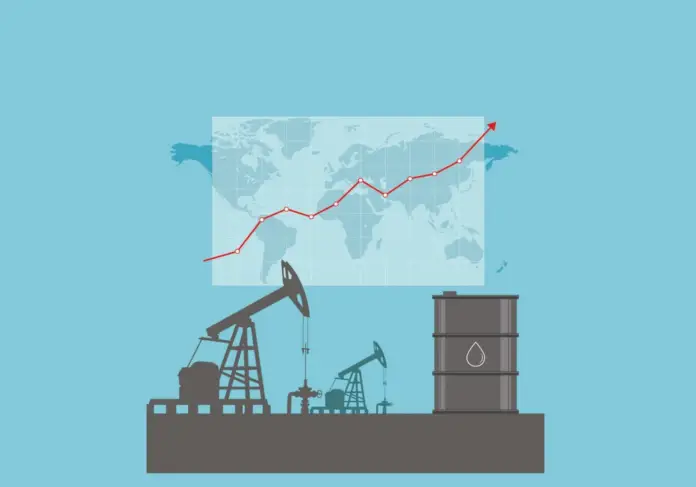Oil prices slipped up to 1.09 percent on week-on-week (WoW) basis while they increased up to 11 percent on month-on-month (MoM) basis, with both global benchmarks trading above $83 following a prolonged rally in prices.
According to details, Brent, the international benchmark for two-thirds of the world’s oil, shed 1.09 percent during the week to reach $83.72 from $84.64 a barrel. It is Brent’s first week in the negative after seven straight weeks of wins. Brent, however, still rose 7.5 percent on the month and is up around 61 percent on the year.
Similarly, the US West Texas Intermediate (WTI) reached $83.57 from $83.76, down by 0.23 percent during the week. For the month, WTI is still up 11 percent while rising 72 percent on the year.
During the week, the price for Opec Basket decreased to $82.41 from $83.42 with 1.19 percent decrease, Arab Light price increased 0.65 percent from $82.48 to $82.94 a barrel, while the price of Russian Sokol went slightly up by 0.06 percent to reach $85.30 from $85.25.
According to experts, a relatively weaker US dollar and rapidly dwindling crude inventories helped maintain oil futures to the highest level in seven years. They said that crude prices could still face a deeper correction after such a prolonged and substantial rally over the last couple of months.
The said that oil price fundamentals are solid, with oil trading at multi-year highs amid a global squeeze in supply, as economies rapidly accelerate growth. Oil prices weighed down by the prospect of Iranian barrels returning to the markets after talks with Tehran are set to resume next month. An agreement with Iran is unlikely to materialise soon, however, the long-term outlook for Iranian supply is brighter than before.
Natural gas prices, which are linked to crude, have also doubled so far this year. Henry Hub prices were however down 3.93 percent at $5.555 per million British thermal units. The price of natural gas in Europe dropped below $850 per 1,000 cubic meters for the first time since the end of September.
Global shortages of natural gas are leading to an increased demand for crude and are placing more pressure on strained oil supplies, the Paris-based International Energy Agency said in October. This, in turn, is helping to feed rising inflation and slow the world’s recovery from the Covid-19 pandemic. The agency expects demand to rise by 500,000 barrels per day due to the current crisis in the energy markets.







